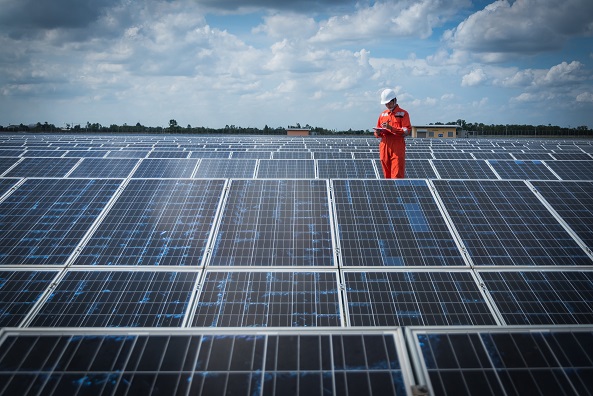The Constitutional Court has suspended part of the Decree-Law approved by the Government of Aragon in March 2023
Published on 28th February 2024
Part of the Aragonese Decree-Law 1/2023 of 20 March on urgent measures to promote energy transition and local consumption has been suspended as a precautionary measure by the Constitutional Court

At the end of 2023, the President of the Spanish Government filed an appeal of unconstitutionality focused on several precepts of the Aragonese Decree-Law 1/2023, of 20 March, on urgent measures to promote energy transition and local consumption in Aragon (hereinafter, the "Decree-Law"). This Decree-Law and the measures implemented by means of it were the subject of our analysis in the article New Aragonese Decree-Law undertakes an important transposition of regulations not transposed by the State in energy matters and creates the so-called local consumption.
As we have already pointed out, this Decree-Law introduces a large number of regulatory novelties in different areas related to energy: local consumption, direct lines, self-consumption, energy communities and distribution networks, among others.
The Constitutional Court, as stated in its informative note no. 9/2024, has agreed to suspend the validity and application of the articles that are the object of the appeal presented by the President of the Spanish Government.
Specifically, the provisions of the Regulation concerned are: article 4; article 5(1), (2) and (4); article 6; article 7(1), (2) and (3)(a), (b) and (c); article 12(2) and (3)(a); article 13(2), (3) and (4); article 19; article 22(2); article 33; article 38; article 39; article 40(2) and (3); article 59, as well as the fourth and fifth additional provisions and the third transitional provision.
The Government's allegations are based on the fact that the aforementioned precepts could violate article 86.1 of the Constitution due to the lack of an authorising premise for the law to be approved by means of a decree-law (i.e., the extraordinary and urgent need that the law is intended to address), as well as sections 13 and 25 of article 149.1 of the Constitution, as they do not respect the competences of the State.
If you would like to find out more about current regulatory and energy regulatory developments, please do not hesitate to contact one of our experts listed below or your usual contact at Osborne Clarke.







